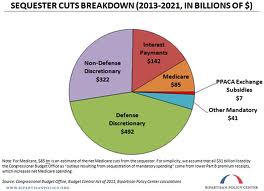The Kaiser Family Fund (KFF) has developed a quiz that helps you understand the uninsured and the consequences of not having coverage. It is worth taking the quiz because you may find out that what you thought was true about the sad state of “uninsurance” in our country is not really true at all. Click here to take the quiz. Be sure to read the answers. Once you are done, click back over to this post and read on…
The Kaiser Family Fund (KFF) has developed a quiz that helps you understand the uninsured and the consequences of not having coverage. It is worth taking the quiz because you may find out that what you thought was true about the sad state of “uninsurance” in our country is not really true at all. Click here to take the quiz. Be sure to read the answers. Once you are done, click back over to this post and read on…
49 million, or 18.5% of the non-seniors are uninsured. In some states (e.g., Texas, New Mexico), the uninsured rate is >25%! No matter how you feel about “big government,” “individual mandates,” or “government-run healthcare,” this fact is a disgrace. We are the only country in the developed world that blithely allows almost 20% of its population to be without health insurance. And given that we also have the highest per capita healthcare costs in the world, it is even more troublesome since uninsured people who get sick or hurt are going to get care and they are going to end up in big financial trouble as a result.
Of course, the consequences of uninsurance affect more than the uninsured. Cost-shifting helps pay for uncompensated care and contributes to the high cost of health insurance and health care. This in turn impacts the competitiveness of American businesses that provide coverage to their employees.
People without insurance will eventually seek health care that they cannot afford to pay for, from ERs and hospitals, thus, putting a financial strain on these institutions. In order to combat this, according to an article in the NY Times, hospitals have been turning to companies like Accretive Health, a company whose website states that it was “built-for-purpose…with the sole focus of providing end-to-end Revenue Cycle execution for providers.” Accretive Health is now being looked at by the Minnesota AG for its predatory practice of placing debt collectors – looking indistinguishable from hospital employees – in emergency rooms and obstetric suites.
According to the Times article, these debt collectors, “may demand [patients] pay outstanding bills and may discourage them from seeking emergency care at all, even using scripts like those in collection boiler rooms.” Not only do these debt collectors harrass people for payment before they are seen (possibly a EMTALA violation, no?), they also apparently have access to Personal Health Information, in violation of HIPAA statutes. Sorry gang, but if this story is true, it is a very sad statement about how far we have let our health care “system” disintegrate.
But, getting back to the uninsured, here are some facts from KFF:
- Compared to adults, children are less likely to be uninsured (10% vs 22%)
- 84% of uninsured are in a family with at least one worker, however, either the company does not offer insurance, or the worker is not eligible (e.g., works part-time), or they can’t afford the cost share
- If they are covered, but lose their job, they may be eligible for COBRA, but, and this is an important but…they have to pay the full cost of the insurance. (You might be thinking, “I get it, I am now unemployed and suddenly my health insurance premium is $500/month. Just how is it that I am going to pay?”)
- Although non-citizens, legal and undocumented, are ~ three times more likely to be uninsured than citizens, they account for less than 20% of the uninsured. This is not something we can primarily blame on the “illegal immigrant problem.”
- Less than one-quarter of the uninsured were ages 19-25, and since the implementation of the ACA, these young people are able to stay on their parent’s policies until age 26.








